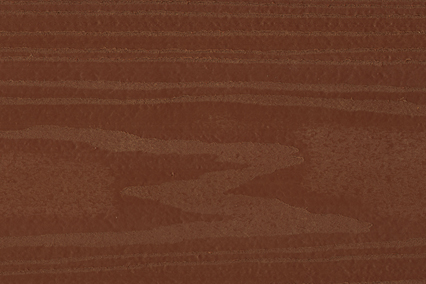
What is Wood Plastic Composite (WPC)?
Wood plastic composite (WPC) is also known by many other names: eco wood, plastic wood, natural fibre plastic composite and natural fibre reinforced plastic, just to name a few.
WPC is a composite material made from wood fibres, plastics and other inorganic filler materials. This composite material can be made to look like wood and smell like wood, but is less susceptible to insects and rot, doesn't splinter and doesn't require the same level of maintenance as natural timber.
WPC is still a relatively new building material, but is already well established as a substitute for timber for decking, pergola cladding and other non-structural uses.
What are the properties of wood plastic composite?
WPC is typically manufactured using a 50/50 blend of wood products and plastics, although these proportions can vary significantly depending on the particular product and requirement. WPC with a higher cellulose (i.e. wood) content behaves like and can be cut like wood. Because it's a manufactured product, WPC can also be made to bend and curve, and is available in unusual shapes and sizes. Likewise, it can be manufactured to take on a wide range of colours and textures, normally to mimic those of natural wood.
Depending on its composition, WPC can be manufactured to a standard that makes it resistant to fire and ember attacks, up to a level that complies with the requirements for a BAL29 rating, in accordance with AS1530.8 (Bushfire testing). Decking not specifically designed for high fire resistance may pose a greater fire hazard than timber though, because of the combustibility of some of the plastics that are used.
WPC is not as rigid as wood, and may buckle and bend significantly in very hot weather. By virtue of the way it's manufactured, WPC may also be more porous than wood too and in some cases will permanently stain when certain substances are spilled on it. In some cases, this porousity has also been responsible for mold infestations in WPC too.
Maintenance, longevity and warranties
WPC typically doesn't need any weatherproofing, oiling or other routine maintenance, although it's worth remembering that it will eventually fade and become scratched, and that normally it can't be sanded back or routinely rejuvenated with oil or stain like timber can.
Many composite products come with a warranty - given the variations in terms of quality and composition between different products, it's a very good idea to carefully check the warranty so that you fully understand what kinds of things each manufacturer does and doesn't cover against.
Is wood plastic composite environmentally friendly?
Wood plastic composite can be made using either virgin timber, recycled timber or the byproducts of other timber manufacturing. It can also make use of a wide variety of plastics, including both virgin (i.e. freshly produced) and recycled plastics like PVC, high density polyethylene and polypropylene. A lot of WPC products are sold on the strength of their sustainability, but as with all things, different brands and products will vary in terms of how environmentally friendly the materials and processes used actually are. These products also contain plastics, so it's worth checking out the impact they could have once they've passed their prime and need to be replaced.
- Able to be moulded and curved.
- Can be made to look, smell and act like timber with the right composition.
- Comes in a broad range of colours and styles.
- Requires very little maintenance.
What is wood plastic composite (WPC) used for?
Wood plastic composite can be used for decking, stairs, cladding or siding for pergolas, infills or any other non-structural purpose.
|
Advantages
|
Disadvantages
|